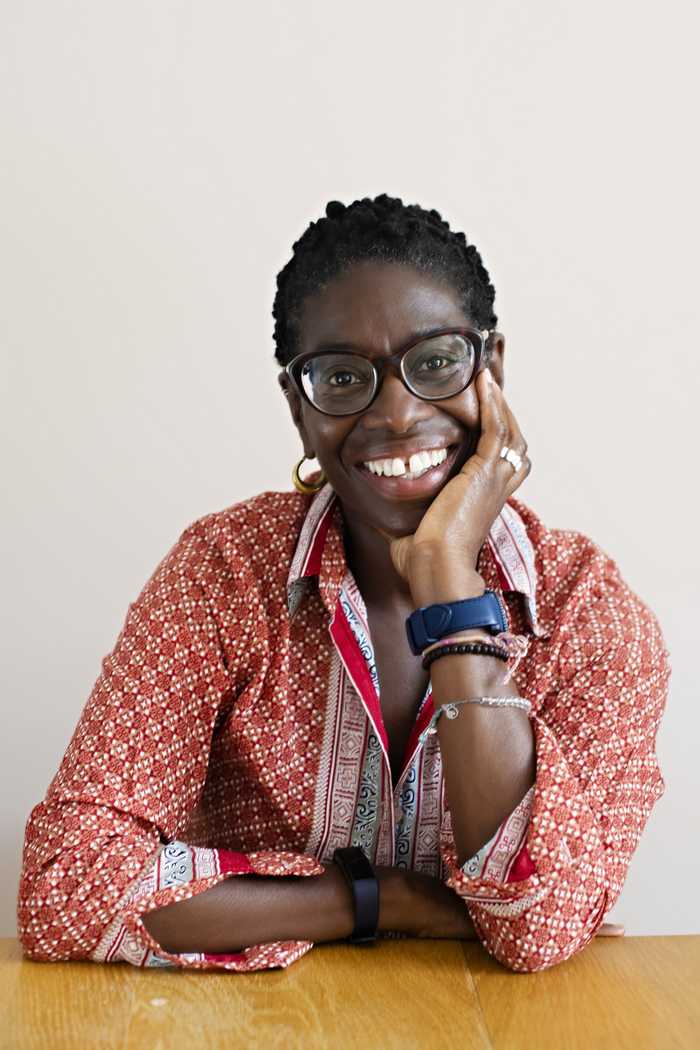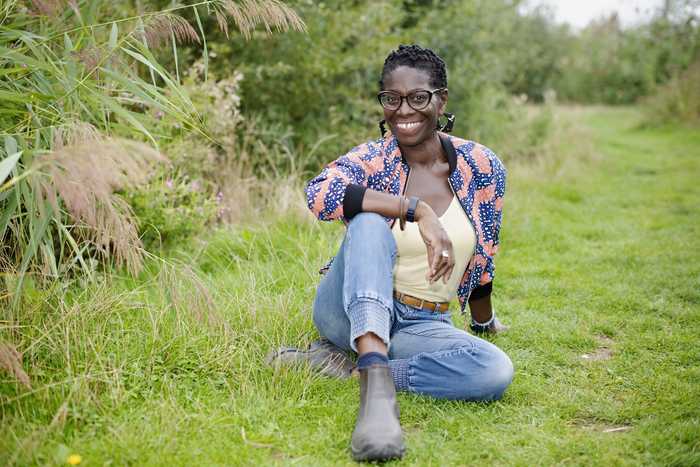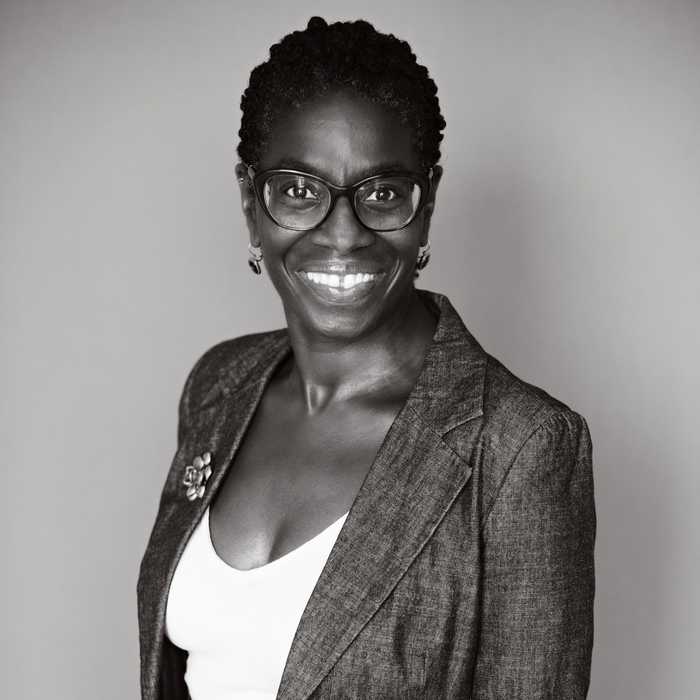Have a seat with...
Flo Headlam
Flo Headlam is a garden designer, horticulturist, TV presenter, and former charity sector worker. Her passion for gardening has made her a hugely popular figure on our screens in the last few years, on BBC flagship shows Garden Rescue and Gardeners’ World.
In today’s Have a Seat With, we chat to Flo about her fascinating career path into gardening, her views on self-sufficient growing and inclusivity within the industry, and about some of her favourite gardens around the world. Take five, and have a read!

Hello, Flo! Thanks for speaking with us today!
A common thread that’s emerged from our Have a Seat With series has been garden designers’ wonderfully varied routes into the world of horticulture. From ex-Army officers, IT professionals, and in the case of James Alexander-Sinclair, a former door-to-door salesman! Can you tell me a little bit about your pathway into garden design as a former charity sector worker?
After more than 20 years working in the charity sector and having my children, I decided I needed a change of scene but had no notion of where that would lead me. Through a series of sessions with a life coach, and some deep-searching questions, I realised I really like gardening, and then also admitted that I was always going around mentally redesigning people’s front gardens.
So I guess it was there, latent, just waiting to be awakened. I started studying horticulture part-time, working part-time for two years, and then I was literally pushed out the door by a good friend/work colleague.
Looking back, it was the most appreciated bossy friend moment. Three more years of studying design and working as a gardener, morphed into designing gardens, and it started to feel like a real career change. Around the same time, a serendipitous meeting with a Gardeners’ World producer also kickstarted that journey into television presenting.
How much did your charity work inspire your approach as a garden designer? Do you think it influenced your desire to become involved in community projects rather than focus solely on private gardens?
I think a lot of the values that I gained working in the charity sector have stayed with me. When I worked for Comic Relief, I had the opportunity to visit projects in the UK and several countries in Africa. I also did a lot of work in schools, so I guess I was exposed to a lot of different communities, some in great need, but all with a story, and the work we did was to tell their stories across different media. I like stories, and gardening in community settings allows me to give back, become more rooted in my community and learn about people and their lives.
Community gardening is such a powerful entity, allowing people to come together and create something with their own hands, skills and determination. I love that, and yes, probably, on a subconscious level my charity values aligned with that and drew me in.
In 2010, upon her appointment as Director General of the Royal Horticultural Society, Sue Biggs laid out the mission statement to make the RHS “attractive to everyone”. From your position as Equity Ambassador for The British Association of Landscape Industries, how do you think the perception of the RHS, and gardening in general, has evolved in the last decade? Do you think the all-important issue of inclusivity has improved?
I think the world of formal horticulture is still very white and ageing. However, there are increasingly more and more people of colour and visible diversity in those spaces. Since 2020, many organisations have been taking a hard look at themselves and how inclusive they are. That’s a good thing. Overdue but a good thing nonetheless. But progress is slow in attracting diversity and making the industry more appealing. The big thing that will make a difference is funding the changes needed. Talking and strategizing and planning is all good, but budget is needed to switch things up, plain and simple.
Nationally and globally, people of colour are returning to the land, forming collectives, growing produce, sharing skills, connecting with each other outside of the mainstream structures. And it’s a movement that has youth and energy behind it. I love that.
It’s getting better. Lots of industries are trying, if only in their advertising initially, to show that they are for inclusivity. But real inclusivity is about being inside these organisations, being supported to join and thrive, being part of the power structures, and being at the table where decisions are made.
With your garden design work, community projects, ambassadorial roles, and television commitments, is there such thing as a normal working day for you?
Haha! Good question. No. No such thing. Which I am very happy about. They say variety is the spice of life and I feel super blessed right now to have such an array of opportunities which allow me to grow as an individual. And don’t forget mum of teenagers. Now that’s a whole other job description!

"Real inclusivity is about being inside these organisations, being supported to join and thrive, being part of the power structures, and being at the table where decisions are made."
I read in a 2017 interview that Kew Gardens was your favourite garden in the world. What is it about Kew that edges it above the rest, and are there any other gardens that you’ve visited since that might challenge its #1 position?
I’ve visited Stourhead a couple of times since and I love it there. It’s the gentle landscaping and the ancient trees that do it for me. And the autumn colours. I could get lost in it for hours.
I was also recently in Jamaica and the botanical gardens, Hope Gardens, was also stunning. So many old, unusual trees to discover and the backdrop of the lush hills framed it beautifully.
In the aftermath of the pandemic, a time when people were forced to spend more time at home and in their gardens, there’s been a noticeable surge in the desire to home-grow fruit and vegetables. What advice would you give anyone looking to embrace a self-sufficient lifestyle?
I’d say go for it. You can start small, maybe just on your window sill, if you don’t have much outdoor space, and graduate to larger pots as your confidence grows. So many stores sell either seeds or small plugs to help you get going. Or you can grow produce from the seeds of what you consume. Online tutorials are out there to guide and inspire. Once you get your first win, seeing a plant grow, thrive, produce leaves, flowers, produce, it’s so inspiring and emotional. You get a real buzz from that. And then it just perpetuates the need to keep on trying. That’s the take away… keep on trying. You can learn so much from your failures as well as your successes. And houseplant ownership too has soared since Covid. Who doesn’t love a big lush monstera?
Another prevalent theme within these interviews is the idea of garden spaces having a positive effect on our mental well-being—made particularly clear during lockdown. I know this is a subject you’re very passionate about. Is this something you discovered early on in your gardening career, or perhaps even before that?
I discovered quite early on that gardening brought peace to an individual. Those early days working as a gardener was the first time in my adult life, I realised, that I actually had space to really think. Being outdoors there were no distractions, just space to look at my life, listen to my thoughts. I came to some powerful realisations. Digging became my new best friend. It’s a great stress buster.
Actually, my first garden was a north facing, concrete yard, but I filled it with over 100 pots and loved watering them in the evening. Even back then I found it soothing.
Many of the different people I’ve worked with, for, alongside have shown me the effect gardening has on them. It definitely has the power to recalibrate. I’ve seen people’s moods lift after a bout of gardening. It’s not just the physicality alone. When the conversations start, that’s also a healing. Talking is as much the therapy as breaking the soil, planting, deadheading… it’s social prescribing.

"Being outdoors there were no distractions, just space to look at my life, listen to my thoughts. I came to some powerful realisations. Digging became my new best friend. It’s a great stress buster."
With such a hectic and busy working life, what do you like to do in your downtime? What’s your idea of a relaxing day?
My ideal day off would be a spa day, or to be driven to the coast to spend time by the sea, or go out for a sumptuous lunch. Equally happy pottering around at home – ignoring the housework – listening to music, writing my journal, cooking.
How did you enjoy being back at RHS Chelsea Flower Show this year, after 2021’s Autumn show and the virtual event of 2020, and do you still have ambitions to submit your own show garden in the future?
It was wonderful to be back at Chelsea this year. I was there in support of my friends Danny Clarke and Tayshan Hayden-Smith who presented their first show garden, Hands Off Mangrove. The weather was on point, the range of gardens always interesting and thought provoking. I particularly liked the sanctuary gardens. The Plantman’s Ice Garden was standout.
And yes, I still have ambitions to exhibit at Chelsea. All I can say is watch this space!
Thank you, Flo! It’s been an absolute pleasure.
The Sitting Spiritually 'Have a Seat With' series takes a look behind the scenes at how we switch off from the bustling modern-day lifestyle. We speak to people of all sorts of backgrounds and lifestyles around the country as we seek to explore the different ways of relaxing and just taking a moment.
Posted on December 6th 2022
